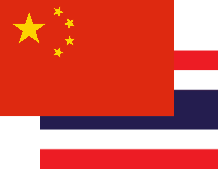What is a basic substance
Regulation (EC) No 1107/2009 introduced the new category of “basic substances”, which are described, among others, as active substances, not predominantly used as plant protection products but which may be of value for plant protection and for which the economic interest of applying for approval may be limited.
Chitosan is a basic substance
The substance chitosan hydrochloride as specified in Annex I of Regulation (EU) No 563/2014 is approved as basic substance subject to the conditions laid down in that Annex.
Specification required : Max content of heavy metals: 40 ppm
Specific provisions : Chitosan hydrochloride may be used in accordance with specific conditions included in the conclusions of the review report on Chitosan hydrochloride (SANCO/12388/2013) .
Conditions of use :
- Only uses as basic substance being elicitor of the crop’s self-defence mechanisms are approved
- The Maximum application rate of chitosan hydrochloride for a single treatment is: 800 gr/ha
Basic substances that may be used in organic agriculture
Criteria concerning “basic substances” in organic agriculture are defined in Annex II of Commission Regulation (EC) 889/2008:
” Only those basic substances within the meaning of Article 23(1) of Regulation (EC) No 1107/20092 of the European Parliament and of the Council that are covered by the definition of “foodstuff” in Article 2 of Regulation (EC) No 178/20023 of the European Parliament and of the Council and have plant or animal origin. Substances are not to be used as herbicides, but only for the control of pests and diseases.”
Chitosan is a basic substance allowed in organic agriculture
Chitosan hydrochloride is fulfilling the criteria of Annex II to Regulation 889/2008. As such it can be used in organic agriculture.
Use authorised : approved as fungicide and bactericide (see Appendices I and II of SANCO/12388/2013 for specific conditions).



